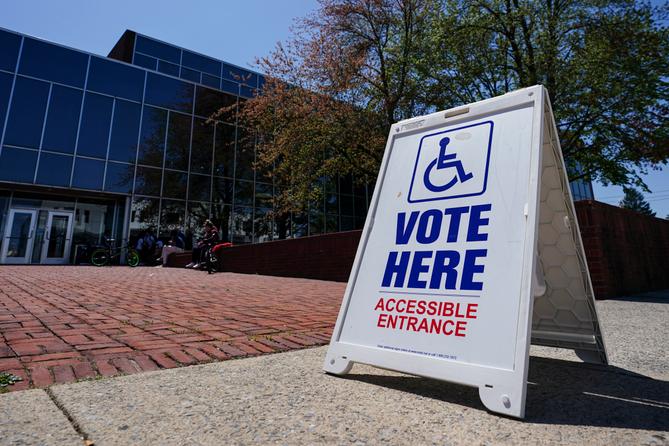To help you make sense of what happened on Election Day and what comes next, Spotlight PA Government Editor Katie Meyer hosted a live panel Tuesday, Nov. 12 from 6-7 p.m. on Zoom.
Our panelists included:
Angela Couloumbis, investigative reporter, Spotlight PA
Carter Walker, reporter, Votebeat
Jordan Wilkie, democracy reporter, WITF
Ivey DeJesus, enterprise reporter, PennLive
We answered audience questions during the event. Below are answers to questions we weren’t able to get to, via Meyer and Spotlight PA’s Stephen Caruso.
From Paul V: What's the status of Casey-McCormick? Will there be a recount; if so how long will it take and is it likely to change the result?
There will likely be a recount.
Pennsylvania performs an automatic recount if two candidates in a race are within 0.5% of one another, but it’s up to the trailing candidate to confirm whether they want the process to go forward.
As of noon Wednesday, Democratic U.S. Sen. Bob Casey was trailing Republican challenger Dave McCormick by 29,338 votes, or 0.43%. Casey had until noon Wednesday to tell the state his wishes. He chose not to stop the recount.
Secretary of State Al Schmidt is waiting for additional unofficial returns and has until 5 p.m. Thursday to order a recount, per The Inquirer.
The recount must begin by the third Wednesday following the election, which is Nov. 20. Results must be submitted to the secretary of state by the following Wednesday, Nov. 27.
A recount is unlikely to change the results of the election. Most do not shift the count by very much, and any changes usually have to do more with ballot challenges than counting errors.
From Vince P.: What changes in leadership do you see for the House and Senate especially since Rep. Cutler is not running again?
State House Republicans ushered in major leadership changes during closed-door elections this week.
Minority Leader Bryan Cutler (R., Lancaster) is stepping down from the position after the party failed to flip the lower chamber. Taking his place is Jesse Topper of Bedford County, the ranking Republican on the Education Committee.
In an upset, rank-and-file state Rep. Jim Struzzi of Indiana County defeated York County’s Seth Grove to be Republican chair of the Appropriations Committee, which is heavily involved in budget negotiations.
First elected in 2014, Topper is seen as amiable and pragmatic by lawmakers from both sides of the aisle. Struzzi is a relatively new face, first elected in 2018. Overall, four out of seven members of the GOP team are fresh to leadership.
In a news conference Tuesday night, Topper did not offer many specifics but said that that team would bring “a new energy” to the caucus.
Publicly and privately, Capitol sources told Spotlight PA they thought that group would be more willing to work with Democrats on shared priorities in the closely divided body.
“I hope we start looking at the people’s work, not ideological work,” said state Rep. Tom Mehaffie (R., Dauphin), a moderate who has often voted with Democrats in the past two years.
On the Democratic side, state Rep. Dan Miller of Allegheny County opted not to run for whip again; state Rep. Mike Schlossberg of Lehigh County will now be the caucus’ chief vote counter. State Rep. Rob Matzie of Beaver County will become the Democratic caucus chair who leads closed-door meetings.
In the state Senate, the Republican majority made no changes to their team. Democrats, however, saw several challenges toward the bottom of the leadership slate. Most notably, progressive state Sen. Katie Muth of Chester County was replaced by the Lehigh Valley’s Nick Miller as the caucus’ policy chair.
From Chris F.: What are the prospects for open primaries?
Pennsylvania is one of 10 states with a closed primary system, which means only voters who are registered to a major party can participate in its primary election.
For years there have been efforts to change this system — last year, for instance, a coalition of five former governors pushed for open primaries.
However, there has simply never been much momentum behind making this big change.
Former state Senate President Pro Tempore Joe Scarnati sponsored an open primary bill in 2019, but the then-GOP-controlled state House didn’t consider it.
This legislative session, with Democrats in control of the state House, two open primary bills passed through committee with exclusively Democratic support. Leadership didn’t call either measure up for a vote.
There will be few changes in the overall makeup of the state legislature in the new session that begins in 2025, but the figures in decision-making positions will mostly be the same. That makes a new approach to the issue relatively unlikely.
